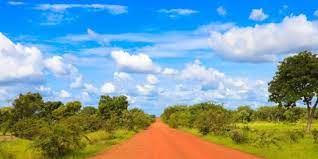
Burkina Faso Travel Vaccines and Advice
The French speaking country of Burkina Faso is located at the heart of West Africa between Mali, Niger and Benin. Burkina Faso is not on the usual tourist routes and therefore remains truly unique and authentic. It is the perfect country for the traveler seeking an off-the-beaten-tracks yet still accessible destination. The traditional way of life of the charming Burkinabé people is very rich and diverse. Music and typical dances with indigenous masks are a big part of Burkinabé culture, as well as art and handicrafts. Beautiful cathedrals and mosques can be found in Ouagadougou and Bobo-Dioulasso, the two main cities of the country.
HEALTH INFORMATION FOR BURKINA FASO
We make every effort to ensure that the information posted on our website is up to date and accurate according to the latest public health recommendations; however, it is impossible for us to make changes on a daily basis.
For the most current travel health recommendations, please call our clinic as make an appointment with one of our travel health professionals.
BURKINA FASO – RECOMMENDED VACCINES
| Hepatitis A | Recommended for all travelers. |
| Hepatitis B | Recommended for all travelers. |
| Causes, Symptoms & Treatment – Typhoid fever | Recommended for all travelers. |
| Tetanus – Diphteria – Pertussis Vaccine | Tetanus: In exceptional circumstances (eg, stay in a region where access to health care is limited), for a person aged 18 years or older, 1 dose of DT may be given if 5 years or more has elapsed since the last dose. Otherwise, one booster dose at the age of 50*.
Pertussis (Whooping Cough): 1 dose is recommended for pregnant women, for every pregnancy, regardless of immunization history and the interval since the last dose (betwen week 26 and 32). *Only applicable for Quebec. |
| Polio | One-time booster recommended for any adult traveler who completed the childhood series but never had polio vaccine as an adult (after 18 years old only). |
| Measles – Rubella – Mumps | Two doses recommended for all travelers born after 1970, if not previously given. |
| Cholera | For humanitarian workers and health care providers. |
| The Yellow Fever Vaccine |
A proof of vaccination against yellow fever may be required upon entry in to this country. Some travellers may not be eligible to receive this vaccine. Please enquire with your health care professional regarding your specific details. For further information, please consult with the World Health Organization (WHO) website: |
| Meningitis | Recommended for all travellers during the season(s). Consider immunization for specific groups or itineraries outside the dry season |
| Flu – Influenza | Seasonal influenza occurs worldwide. The flu season usually runs from November to April in the northern hemisphere, between April and October in the southern hemisphere and year round in the tropics. Influenza (flu) is caused by a virus spread from person to person through coughing and sneezing or by touching infected surfaces. Everyone 6 months and older should get a flu vaccine yearly. Vaccine is recommended 14 days prior to departure. |
| Routine vaccines (dCaT, Polio, Meningococcal, Shingles, Pneumococcal, Hepatitis B, HPV, MMR & Varicella) | Recommended for all travelers |
| African Tick Bite Fever | Presence. All travellers should protect themselves against tick bites. |
| Transmission, Symptoms and Prevention – Rabies | For travelers at high risk of animal bites or being involved in activities with bats, dogs and other mammals. Clients who plan to visit remote areas may consider receiving this vaccine. Important to note the pre-exposure rabies vaccine is administered in 2 doses with one week interval between doses. Post-exposure vaccination is always recommended, even for those previously vaccinated. |
| Schistosomiasis | Avoid swimming in fresh water. |
| Turista – Traveler’s Diarrhea (ETEC) | Talk to your health care professional about the risks and precautionary measures to take, as well as the Dukoral® vaccine. Important to note that the Dukoral vaccine is an oral vaccine given in 2 doses, recommended at least 2 weeks prior to departure. |
| Malaria | Malaria is present in this country. The risk may be region specific. Prophylaxis measures to be discussed with the health care professional. |
| Dengue Fever, Chikungunya and/or Zika | There are many illnesses that are transmitted via mosquito bites and unfortunately we do not have vaccines to protect us against most of them. It is important to inquire with your healthcare professional regarding the specific risks and the different illnesses presently in circulation. |
RECOMMENDED MEDICATIONS FOR TRAVELLING TO BURKINA FASO
| Antimalarials Recommended | Malarone, Doxycycline or Mefloquine |
| Antibiotics Traveler’s Diarrhea | Azithromycin or Suprax |
MEDICAL CARE IN BURKINA FASO
Public hospitals and some private medical establishments are found in Burkina Faso. But access to health care, even basic, is very poor in the country. The medical infrastructure is insufficient and shortages of medicines are frequent. In rural areas, it is very hard and sometimes impossible to find adequate care.
In case of emergency, be aware that ambulances in Burkina Faso are slow and very bad equipped. In some areas, they are non existent.
Access to medicines is very limited, and most of the local pharmacies don’t have any governmental license. It is thus strongly advised that you bring a complete first aid kit and all the drugs you could need when traveling to Burkina Faso.
SECURITY ABROAD
The threat of kidnapping persists in Burkina Faso’s northern area, due to the proximity of Mali and Niger, where criminal and terrorist groups are active. Should you plan to go to these areas despite the advisory:
CANADIAN EMBASSY
Emergency services
In case of emergency, dial:
- 17 for police
- 18 for firefighters
SECURITY ABROAD
U.S. airstrike
